Research Themes
ACARE brings together a team of expert researchers focused on understanding and combating AMR whilst training a new generation of multidisciplinary scientists. ACARE’s research covers six major themes (Microbial Genomics and Ecology, Novel Preventatives and Therapeutics, Host-Pathogen Interactions, Agrifood and Environmental Health, Surveillance and Epidemiology, and Zoonoses and Biosecurity).

Key research themes
-
Microbial Genomics and Ecology
Ecology and evolution of antimicrobial resistance of critically important antimicrobials of Gram-negative bacteria in humans, animals and the environment
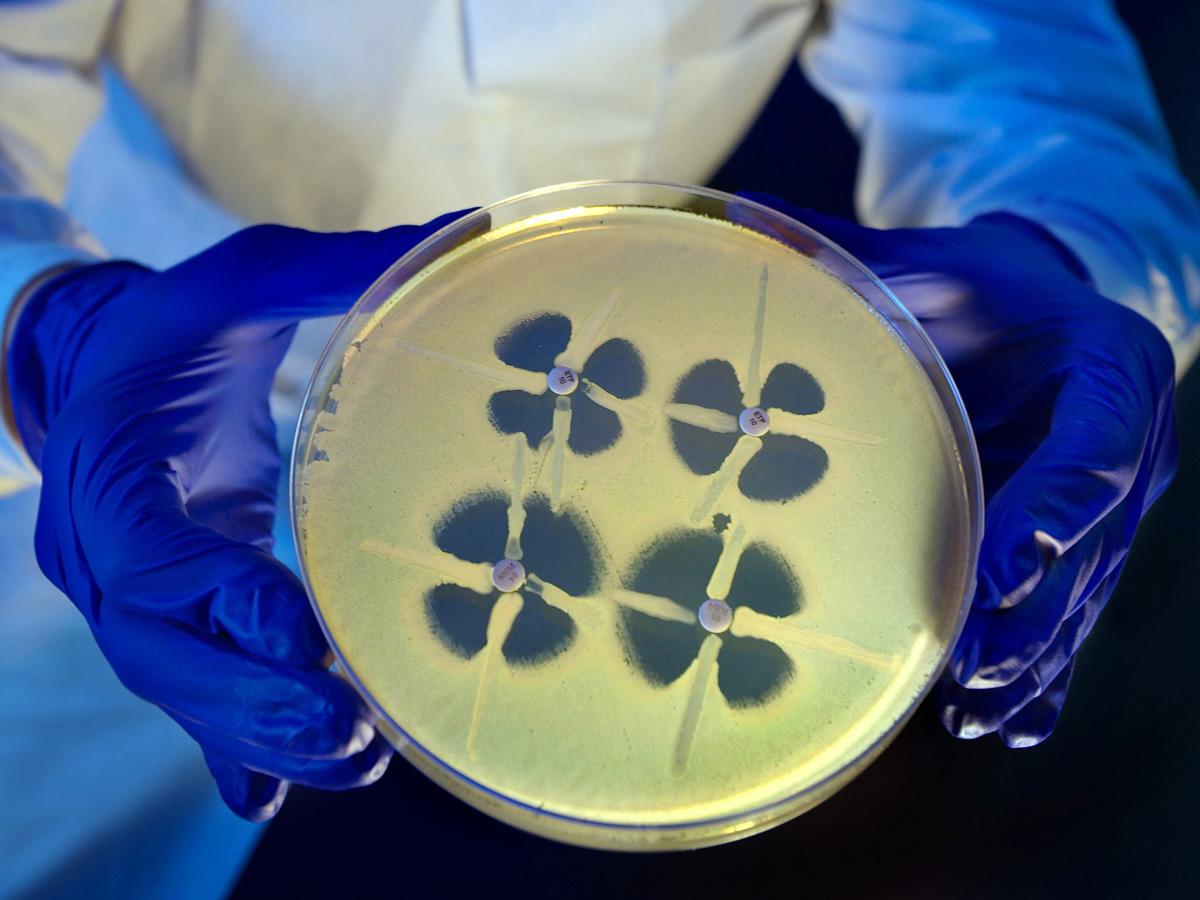
ACARE scientists explore the characterisation and comparative genomic analysis of multidrug-resistant gram-negative pathogens isolated from humans, animals and the environment.
Understanding the movement of gram-negative strains, plasmids and resistance genes between humans and animals via the environment is critical to mitigating AMR in the medical, veterinary and agricultural sectors.
The demonstration of a low AMR risk may provide Australian livestock producers with a competitive advantage in international markets.
Carbapenems, colistin and fluoroquinolones are last line therapies for multidrug-resistant Gram-negative superbugs and resistance. They are encoded by highly transmissible plasmids and occur rapidly across the world in both human and animal populations.
Co-selection by both lower importance rating antimicrobials and heavy metals, appear to be important in their dissemination.
Bacteria that are resistant to carbapenems produce a distinctive clover-leaf shaped growth pattern.
Photo by James Gathany - Centers for Disease Control and Prevention
Third generation cephalosporin resistance in livestock pathogens and commensals
Third-generation cephalosporins are the only critically important drug for humans that are registered for use in livestock in Australia. They are used for respiratory disease in cattle.
These antibiotics cannot be used in poultry in Australia, but can be administered under off-label legislation to individual pigs. Careful stewardship and resistance surveillance is required to ensure current rates of resistance remain low.
-
Novel Preventatives and Therapeutics
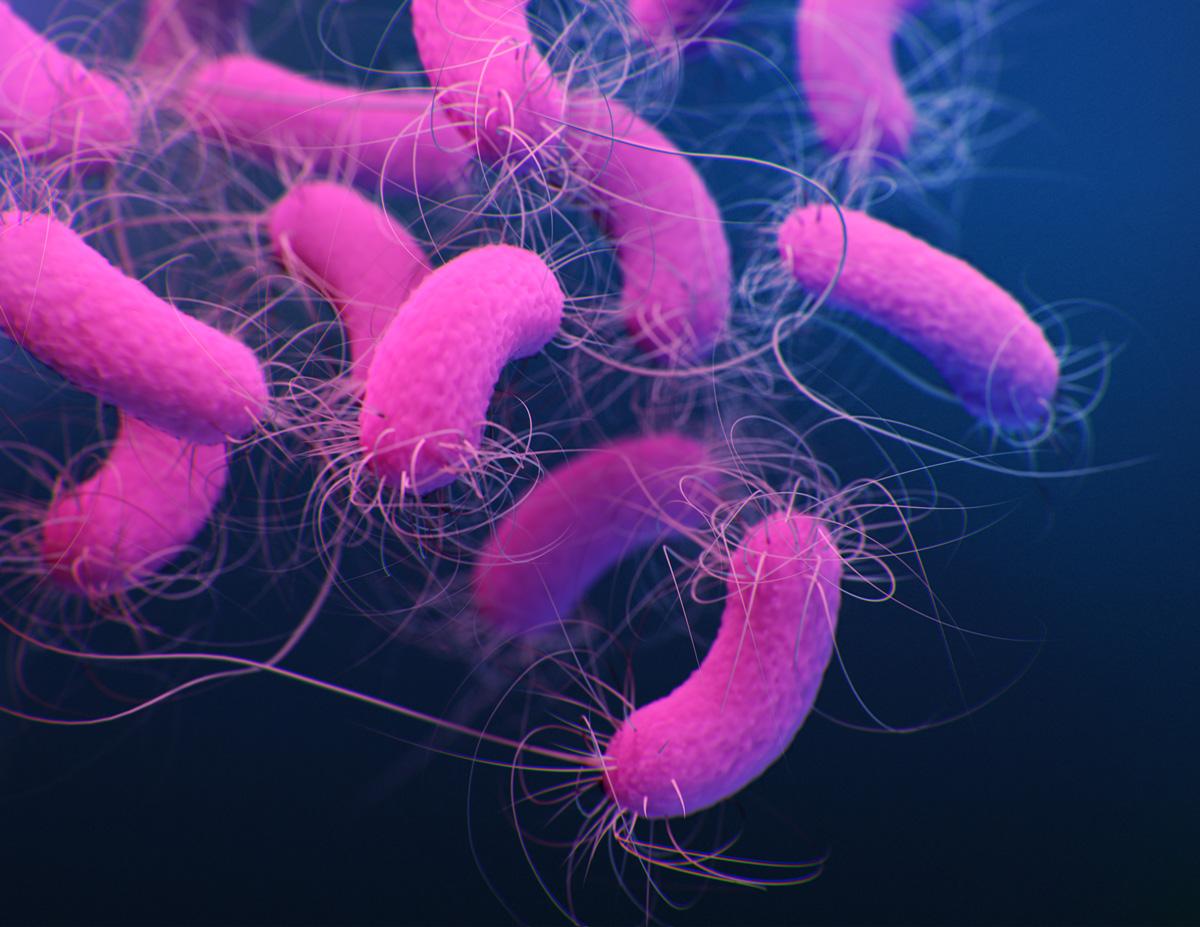
Herbicide and Antimicrobial Innovation Laboratory
Parasitic Diseases Research Group
Medical illustration of multidrug-resistant Pseudomonas aeruginosa bacteria
Image by Jennifer Oosthuizen - Centers for Disease Control and Prevention -
Host-Pathogen Interactions
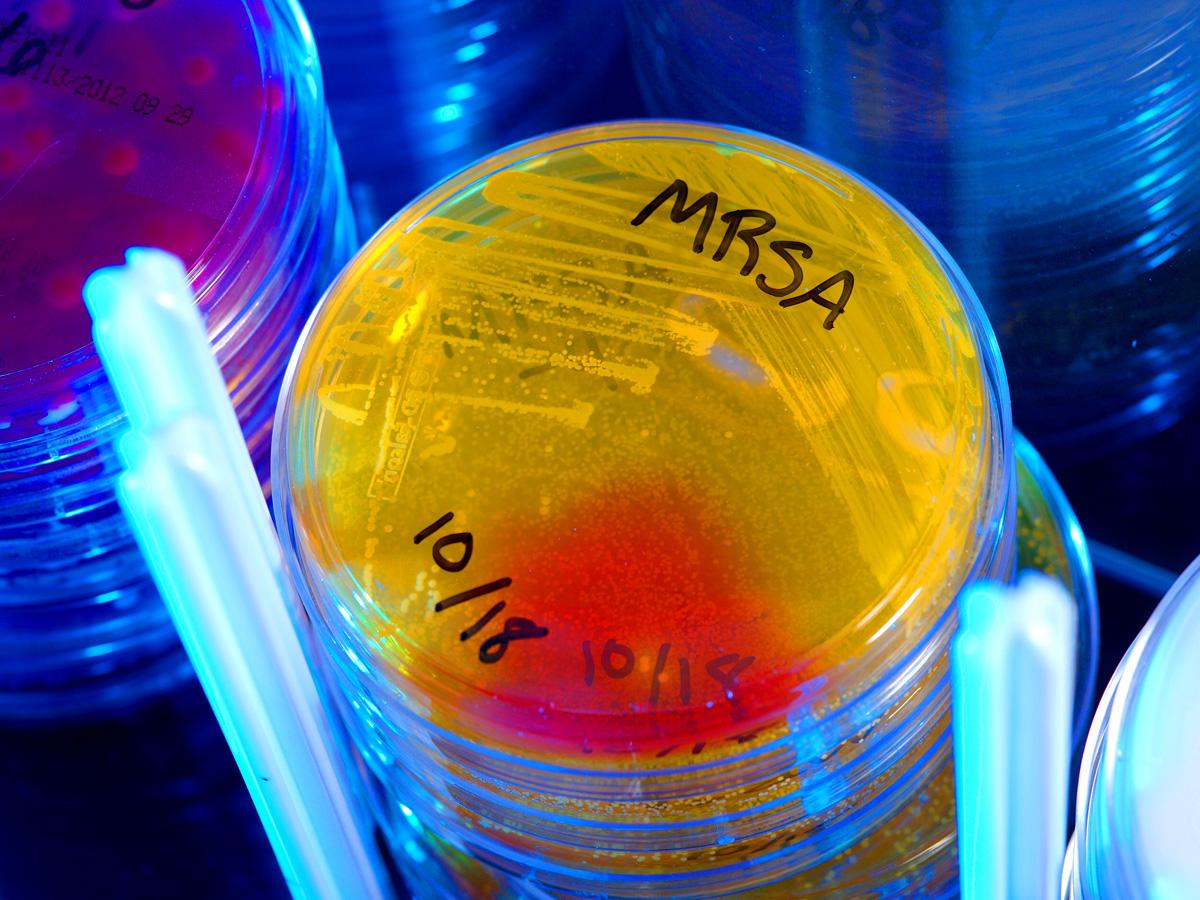
Researchers at ACARE develop new strategies and approaches to combat multidrug-resistant superbugs through targeted design and repurposing. These approaches include dual therapies, novel drug classes and efflux inhibitors.
Methicillin-resistant Staphylococcus aureus (MRSA) bacteria is one example of a 'superbug' as it has become resistant to antibiotics that are usually used to treat it.
Photo by James Gathany - Centers for Disease Control and Prevention -
Parasitic Diseases Research Group
The ACARE Parasitic Diseases Research Group (ParaDRG) is developing new drugs and vaccines for the control of parasitic diseases.
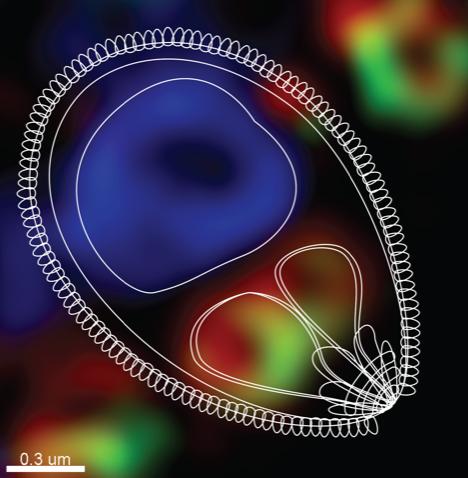
Representation of a red blood cell invading malaria parasites with the CERLI 1 protein (green) wrapping around one of the proteins that cannot function without CERLI1 activity (in red). Image: Malaria Biology Lab, Research Centre for Infectious Diseases
The research group brings together experts and resources from both the human and livestock parasite fields in a combined approach that bridges molecular, cellular, animal and on farm approaches to combat parasitic diseases.
The ParaDRG is:
- working with industry partners - such as Neoculi Pty Ltd - on novel classes of compounds with activity against a range of veterinary and human parasites to develop new drug treatments to treat debilitating infections;
- developing a range of novel vaccine approaches to protect against major human and livestock pathogens;
- working with industry stakeholders to identify parasite risk factors on farm and develop strategies to reduce stock losses; and
- identify the cause and sources of zoonotic infections between livestock, wildlife and humans.
Masters and PhD projects
Our researchers offer a range of higher degree by research projects that cross disciplines, disease models and enable direct interaction with industry partners. Contact the relevant supervisors below for information on projects and opportunities.
Partner with us
Engagement with industry and stakeholders remains a priority for the ParaDRG and ACARE. To discuss how the ParaDRG and ACARE can partner with you, please contact our team.
ParaDRG team
Dr Danny Wilson Head, Malaria Biology Lab
Research Centre for Infectious Diseases,
School of Biological SciencesExpert in apicomplexan biology and drug discovery Associate Professor Ryan O’Handley Parasitologist
School of Animal and Veterinary SciencesExpert in parasitic diseases of livestock, antiparasitic drugs and apicomplexan parasite vaccines Associate Professor Milton McAllister Pathologist
School of Animal and Veterinary SciencesExpert in ruminant diseases and apicomplexan parasites of livestock Professor Darren Trott Microbiologist
School of Animal and Veterinary SciencesExpert in antimicrobial resistance and drug discovery Dr Anne-Lise Chaber Doctor in One Health
School of Animal and Veterinary SciencesExpert on cross-disciplinary approaches to Human, Animal and Ecosystem Health -
Surveillance and Epidemiology
-
Zoonoses and Biosecurity
-
Agrifood and Environmental Health
National research priorities
Our research aligns with the National Research Priorities of ‘improving health outcomes for all Australians’ and ‘optimising food and fibre production/processing’.
These are closely related to the South Australian priorities of ‘safe communities, healthy neighbourhoods’ and ‘premium food and wine from our clean environment’. The SA food and wine industry is worth more than $14 billion and accounts for 36 per cent of SA’s total merchandise exports. Livestock and dairy production contributes $4.4 billion to this.
World demand for high quality animal protein will rise by 70% by 2050, requiring novel, environmentally sustainable solutions to microbial disease control to reduce reliance on currently registered antimicrobial agents.
ACARE’s research outputs will reinforce the fact that Australian livestock pathogens and commensals have extremely low rates of AMR to critically important drug classes used in humans compared to international benchmarks. This will confirm Australia’s status as a clean and green producer of high quality animal protein.
ACARE is aligned with objectives 1, 3, 4 and 5 of the National Antimicrobial Resistance Strategy.
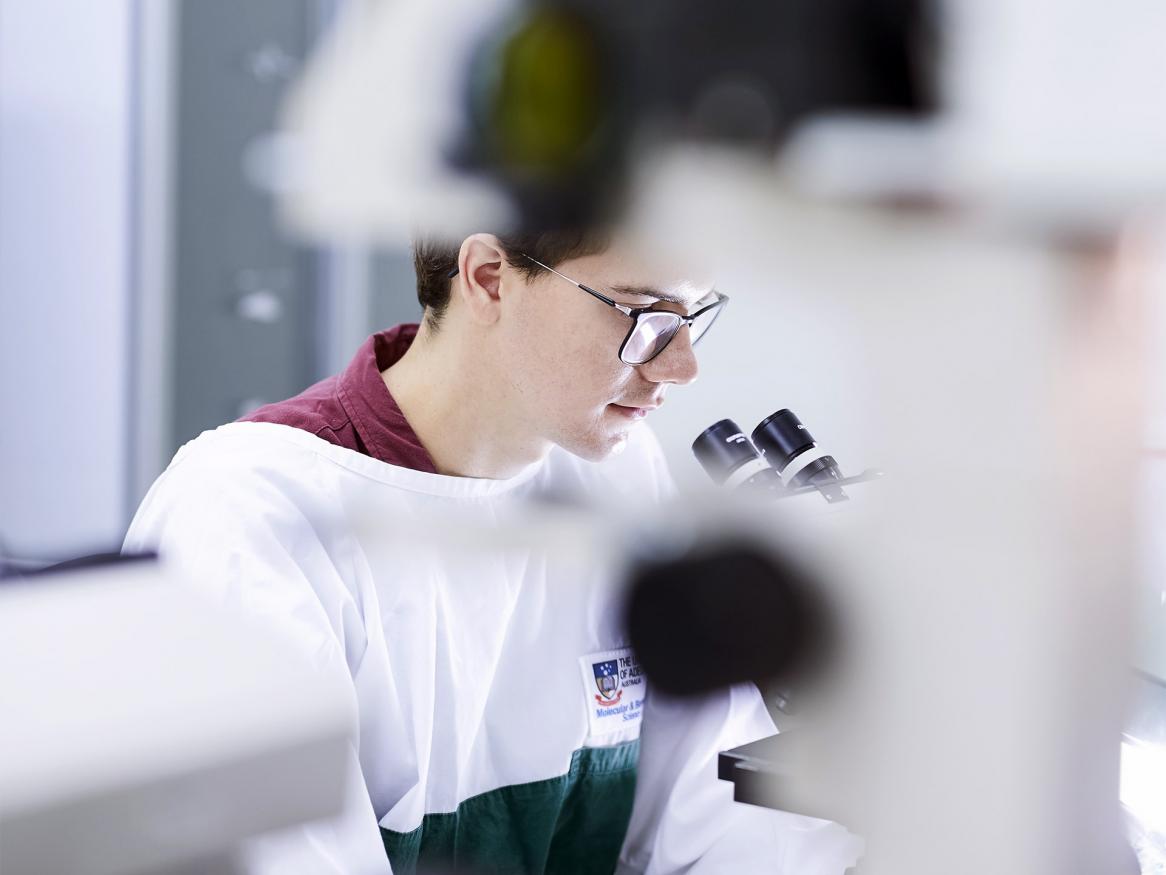
Research degrees
We have opportunities for honours, PhD and Masters of Philosophy research in various disciplines across our collaborative projects. Please contact our researchers directly to discuss your interests and what might be available.
